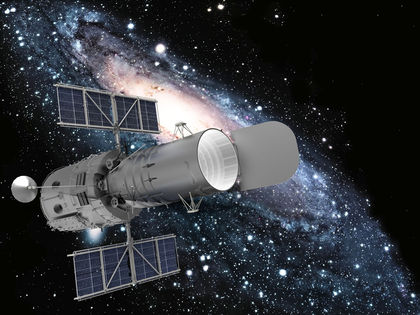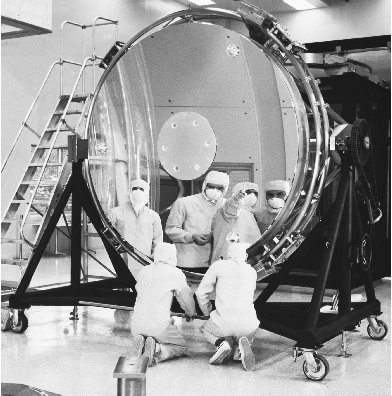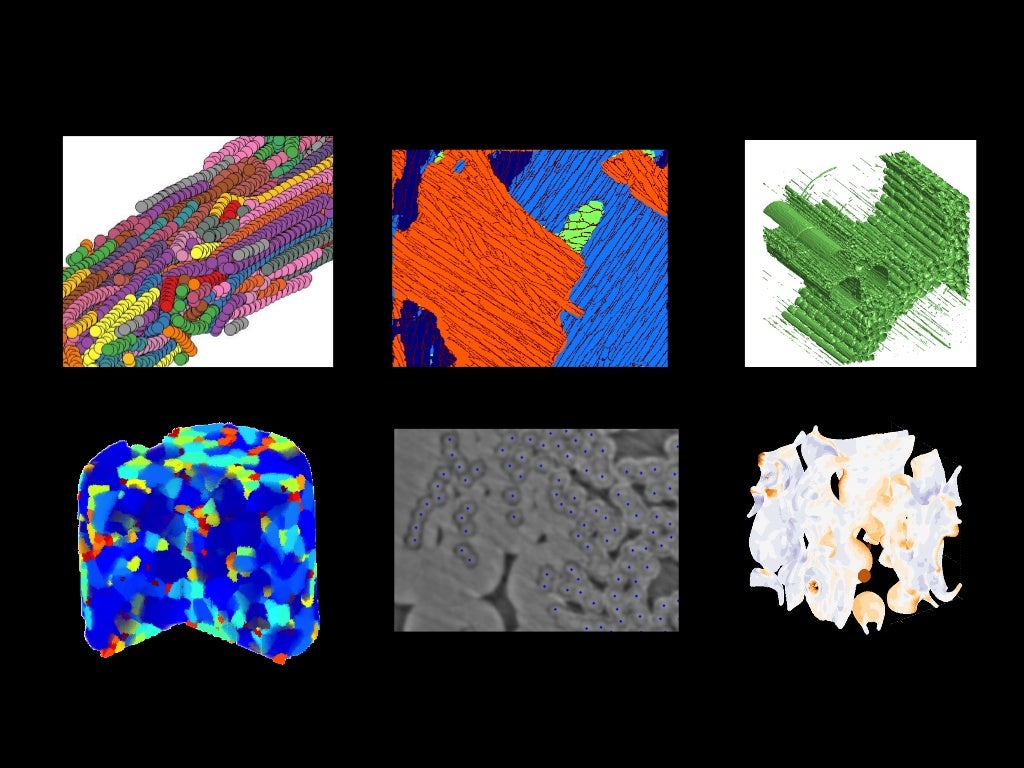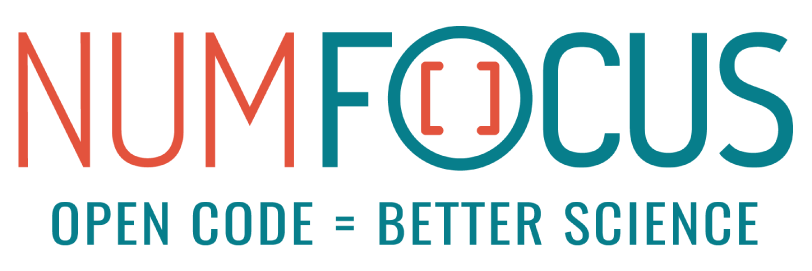from pydata.style import *
%load_ext literacy.template
https://www.youtube.com/embed/0fKBhvDjuy0
## Topics
This presentation is inspired by simple geometries. Eventually we settled on the following key `topics\`
= 'design, systems, materials, community, media, culture'
with the accompanying `constraints\`
= 'functional, geographical, physical, people, sensory, time'
Topics¶
This presentation is inspired by simple geometries. Eventually we settled on the following key topics\
= 'design, systems, materials, community, media, culture'
with the accompanying constraints\
= 'functional, geographical, physical, people, sensory, time'
topics, constraints = map(lambda ___: ___.replace(' ', '').split(','),[topics, constraints])
# [Shapes of the presentation]()
df
| constraints | functional | geographical | physical | people | sensory | time | |
|---|---|---|---|---|---|---|---|
| order | topic | ||||||
| 0 | design | systems | materials | community | media | culture | design |
| 1 | systems | materials | community | media | culture | design | systems |
| 2 | materials | community | media | culture | design | systems | materials |
| 3 | community | media | culture | design | systems | materials | community |
| 4 | media | culture | design | systems | materials | community | media |
| 5 | culture | design | systems | materials | community | media | culture |
Import('.Sierpinski Triangle');
Import('.shapes');
# Abstracts
{% for topic in topics[:2] %}{{the.Path().read_text().loads().get_in(['cells', 0, 'source'])[''.join](topic+'.ipynb')}}
{% endfor %}
{% for topic in topics[2:4] %}{{the.Path().read_text().loads().get_in(['cells', 0, 'source'])[''.join](topic+'.ipynb')}}
{% endfor %}
{% for topic in topics[4:] %}{{the.Path().read_text().loads().get_in(['cells', 0, 'source'])[''.join](topic+'.ipynb')}}
{% endfor %}
## Particles
Particles are standalone articles and presentations that are importable.
Astropy = Import('.Astropy Units')
* https://en.wikipedia.org/wiki/Timeline_of_computing_hardware_before_1950
* https://en.wikipedia.org/wiki/History_of_computing_hardware_(1960s%E2%80%93present)

https://en.m.wikipedia.org/wiki/Transatlantic_communications_cable#Private_cable_routes

http://www.scienceclarified.com/scitech/Telescopes/Hubble.html
## _Design_ & [Materials]()
* Metals, Polymers, Ceramics
* Function, Structural
* Composite


%%html
<div class="github-card" data-user="chrislgarry" data-repo="Apollo-11"></div>
<script src="https://cdn.jsdelivr.net/gh/lepture/github-cards@1.0.2/jsdelivr/widget.js"></script>
## Hubble Glass

Hubble Glass¶

## [Gorilla Glass](http://www.designlife-cycle.com/corning-gorilla-glass/)
### [Degradation of railway rails from a materials point of view](http://publications.lib.chalmers.se/records/fulltext/173441/173441.pdf#page=15)
## [Advanced High Strength Steels](https://lightmat.org/capabilities/los-alamos-national-laboratory/advanced-high-strength-steel-development)
[](https://lightmat.org/capabilities/los-alamos-national-laboratory/advanced-high-strength-steel-development)
### [High-Throughput Image Analysis of Fibrillar Materials: A Case Study on Polymer Nanofiber Packing, Alignment, and Defects in Organic Field Effect Transistors](http://pubs.acs.org/doi/abs/10.1021/acsami.7b10510)
### Philanthropic
* [Human Cell Atlas](https://www.humancellatlas.org/) ([Chan Zuckerberg](https://chanzuckerberg.com/))
Philanthropic¶
### Public

# conda  forge
https://www.ncbi.nlm.nih.gov/pmc/articles/PMC3878597/
https://en.m.wikipedia.org/wiki/Reproducibility#Reproducible_research
https://en.m.wikipedia.org/wiki/The_Structure_of_Scientific_Revolutions
https://en.m.wikipedia.org/wiki/LIGO_Scientific_Collaboration#History
https://www.fraunhofer.de/en.html
<IPython.core.display.Markdown object>
> ## [The First Web Page](http://info.cern.ch/hypertext/WWW/TheProject.html "1990")
## [Particles at NYT](http://nytlabs.com/blog/2015/10/20/particles/)
## [d3: Data-Driven documents](https://d3js.org)
https://getbootstrap.com/
https://reactjs.org/
https://www.ushahidi.com/
https://native-land.ca/
inconvenient truth
h
<IPython.core.display.Markdown object>
http://opengeoscience.github.io/geojs/examples/hurricanes/
http://www.redharebrewing.com/red-hare-launches-worlds-first-evercan/
## [Design of Experiments](https://en.m.wikipedia.org/wiki/Design_of_experiments#Fisher.27s_principles 1935)
import sklearn.datasets
print(sklearn.datasets.load_iris().DESCR)
Iris Plants Database
====================
Notes
-----
Data Set Characteristics:
:Number of Instances: 150 (50 in each of three classes)
:Number of Attributes: 4 numeric, predictive attributes and the class
:Attribute Information:
- sepal length in cm
- sepal width in cm
- petal length in cm
- petal width in cm
- class:
- Iris-Setosa
- Iris-Versicolour
- Iris-Virginica
:Summary Statistics:
============== ==== ==== ======= ===== ====================
Min Max Mean SD Class Correlation
============== ==== ==== ======= ===== ====================
sepal length: 4.3 7.9 5.84 0.83 0.7826
sepal width: 2.0 4.4 3.05 0.43 -0.4194
petal length: 1.0 6.9 3.76 1.76 0.9490 (high!)
petal width: 0.1 2.5 1.20 0.76 0.9565 (high!)
============== ==== ==== ======= ===== ====================
:Missing Attribute Values: None
:Class Distribution: 33.3% for each of 3 classes.
:Creator: R.A. Fisher
:Donor: Michael Marshall (MARSHALL%PLU@io.arc.nasa.gov)
:Date: July, 1988
This is a copy of UCI ML iris datasets.
http://archive.ics.uci.edu/ml/datasets/Iris
The famous Iris database, first used by Sir R.A Fisher
This is perhaps the best known database to be found in the
pattern recognition literature. Fisher's paper is a classic in the field and
is referenced frequently to this day. (See Duda & Hart, for example.) The
data set contains 3 classes of 50 instances each, where each class refers to a
type of iris plant. One class is linearly separable from the other 2; the
latter are NOT linearly separable from each other.
References
----------
- Fisher,R.A. "The use of multiple measurements in taxonomic problems"
Annual Eugenics, 7, Part II, 179-188 (1936); also in "Contributions to
Mathematical Statistics" (John Wiley, NY, 1950).
- Duda,R.O., & Hart,P.E. (1973) Pattern Classification and Scene Analysis.
(Q327.D83) John Wiley & Sons. ISBN 0-471-22361-1. See page 218.
- Dasarathy, B.V. (1980) "Nosing Around the Neighborhood: A New System
Structure and Classification Rule for Recognition in Partially Exposed
Environments". IEEE Transactions on Pattern Analysis and Machine
Intelligence, Vol. PAMI-2, No. 1, 67-71.
- Gates, G.W. (1972) "The Reduced Nearest Neighbor Rule". IEEE Transactions
on Information Theory, May 1972, 431-433.
- See also: 1988 MLC Proceedings, 54-64. Cheeseman et al"s AUTOCLASS II
conceptual clustering system finds 3 classes in the data.
- Many, many more ...
Remote work, asychnroneous work. A pivotal transition in fiber optics and infrastructure was occuring when Powers of Ten was presented to the public. The explosive growth of bandwith, processing power, sensing capabilities, and miniturization lead to inclusive of technology into our communities, media, cultures, and ultimately design.
from renci.style import *
%load_ext literacy.template
https://en.m.wikipedia.org/wiki/Three-age_system#Three-age_system_resumptive_table
> [In the 1960s the silicon began](http://www.greatachievements.org/?id=3805)
https://en.m.wikipedia.org/wiki/Trinity_(nuclear_test)
https://en.m.wikipedia.org/wiki/DARPA
# [Apollo 11 Lunar Landing Visualization](https://player.vimeo.com/video/28199826 "1969")
# [Xerox PARC](https://www.youtube.com/embed/yJDv-zdhzMY)
# [Powers of Ten](https://www.youtube.com/embed/0fKBhvDjuy0)
https://en.m.wikipedia.org/wiki/Ada_Lovelace#First_computer_program

[The Mark I Computer](http://sites.harvard.edu/~chsi/markone/language.html)
https://player.vimeo.com/video/36579366
## [d3: Data-Driven documents](https://d3js.org)
## _Systems_ & [Culture](https://openculture.com/2013/10/4000-years-of-history-in-histomap-from-1931.html)
> [Larger Image](http://www.slate.com/features/2013/08/histomapwider.jpg)
[Timeline of Open Source](https://en.m.wikipedia.org/wiki/Timeline_of_open-source_software)
Import('.World Bank');
http://blog.fperez.org/2012/01/ipython-notebook-historical.html
http://printingcode.runemadsen.com/lecture-color/
## _Systems_ & [Systems]()
Just talked about how humans do work and interface.
Automation of human work is prevailing.
* [Marketing Automation](https://mailchimp.com/features/marketing-automation/)
* [Github Integrations](https://github.com/marketplace)
* 
http://www.pewresearch.org/fact-tank/2017/10/04/6-key-findings-on-how-americans-see-the-rise-of-automation/
## Functional + Structural Materials
> There is still a lot work to do.
[](https://mgi.nist.gov)
%load_ext literacy.template
from style import *
[`Import('.Bad News').show()`](../particles/Bad News.ipynb)
### Good News
Good News¶
http://nbviewer.jupyter.org/github/jakevdp/PythonDataScienceHandbook/blob/master/notebooks/04.00-Introduction-To-Matplotlib.ipynb#Visualization-with-Matplotlib
<div class="github-card" data-user="materialsinnovation" data-repo="pymks"></div>
<script src="https://cdn.jsdelivr.net/gh/lepture/github-cards@1.0.2/jsdelivr/widget.js"></script>
https://zoomimgs.github.io/
Communities self-organize to engineer solutions to problems within a set of geographical and material constraints.
[Code of Hammurabi](https://en.m.wikipedia.org/wiki/Code_of_Hammurabi "-1754")
[Rosetta Stone](https://en.m.wikipedia.org/wiki/Rosetta_Stone "-196")
[Magna Carta](https://en.m.wikipedia.org/wiki/Magna_Carta "1215")
[Gutenberg bible](https://en.m.wikipedia.org/wiki/Gutenberg_Bible "1450")
[Declaration of Independence](https://en.m.wikipedia.org/wiki/United_States_Declaration_of_Independence "1819")
https://www.high.org/exhibition/basquiat-notebooks/
* Old Time magazines
* Newspapers
* Sears Catalog
* Zines
---
* USENET
* IRC
* BBS
* MUDs
- Old Time magazines
- Newspapers
- Sears Catalog
- Zines
- USENET
- IRC
- BBS
- MUDs
> ## [The First Web Page](http://info.cern.ch/hypertext/WWW/TheProject.html "1990")
> ## The web needs _both raw data_ -- _fresh hypertext_ or old plain text files, or _smart servers_ giving views of existing databases
> – [Helping.html (1990)](http://info.cern.ch/hypertext/WWW/Helping.html)
The web needs both raw data -- fresh hypertext or old plain text files, or smart servers giving views of existing databases¶
## _Community_ & [Design]()
> .. it was Plato (ca. 427 347 BCE) who decreed that all geometric constructions should be done with a straightedge and compass alone.
- excerpt from _Beautiful Geometry_, Maor, Jost; 2014
https://en.wikipedia.org/wiki/Form_follows_function#Origins_of_the_phrase
https://player.vimeo.com/video/75234192
## _Community_ & [Systems]()
> The Eagle soars in the summit of Heaven,
The Hunter with his dogs pursues his circuit.
O perpetual revolution of configured stars,
O perpetual recurrence of determined seasons,
O world of spring and autumn, birth and dying!
The endless cycle of idea and action,
Endless invention, endless experiment,
Brings knowledge of motion, but not of stillness;
Knowledge of speech, but not of silence;
Knowledge of words, and ignorance of the Word.
All our knowledge brings us nearer to death,
But nearness to death no nearer to God.
Where is the Life we have lost in living?
Where is the wisdom we have lost in knowledge?
Where is the knowledge we have lost in information?
The cycles of Heaven in twenty centuries
Brings us farther from God and nearer to the Dust.
> [T.S. Eliot - The Rock](http://www.tech-samaritan.org/blog/2010/06/16/choruses-from-the-rock-t-s-eliot/)
Community & Systems¶
The Eagle soars in the summit of Heaven, The Hunter with his dogs pursues his circuit. O perpetual revolution of configured stars, O perpetual recurrence of determined seasons, O world of spring and autumn, birth and dying! The endless cycle of idea and action, Endless invention, endless experiment, Brings knowledge of motion, but not of stillness; Knowledge of speech, but not of silence; Knowledge of words, and ignorance of the Word. All our knowledge brings us nearer to death, But nearness to death no nearer to God. Where is the Life we have lost in living? Where is the wisdom we have lost in knowledge? Where is the knowledge we have lost in information? The cycles of Heaven in twenty centuries Brings us farther from God and nearer to the Dust.
https://en.m.wikipedia.org/wiki/Bauhaus
### [Paul Klee]()
> A line is a dot that went for a walk.
IFrame("https://www.zpk.org/")
* Goal is **insight**, not **entertainment**... though **insight** can be _entertaining_
* Communities use systems that do **work** when humans **can't**... or **shouldn't**
- Goal is insight, not entertainment... though insight can be entertaining
- Communities use systems that do work when humans can't... or shouldn't
## [Decline of library usage](https://en.m.wikipedia.org/wiki/Trends_in_library_usage#Academic_libraries)
https://www.hermanmiller.com/content/hermanmiller/northamerica/en_us/home/research/research-summaries/the-once-and-future-library.html
<blockquote class="twitter-tweet" data-lang="en"><p lang="en" dir="ltr">fuck paywalls for research papers, fuck paying to publish. these things do nothing good for science. i can't even access my own work.</p>— Tony Fast (@DocFast) <a href="https://twitter.com/DocFast/status/922282015281569792?ref_src=twsrc%5Etfw">October 23, 2017</a></blockquote>
<script async src="https://platform.twitter.com/widgets.js" charset="utf-8"></script>
fuck paywalls for research papers, fuck paying to publish. these things do nothing good for science. i can't even access my own work.
— Tony Fast (@DocFast) October 23, 2017
* Github
* Science
* Students
* Desktop
- Github
- Science
- Students
- Desktop
> Integration into the Web of Knowledge?
Integration into the Web of Knowledge?
* Universal Content Identity
* Zenodo (DOI) - A CERN project
* Blockchain
* Interplanetary File System
* DAT - A Moore Foundation Project
* Publishing
* Journal of Open Source Science
* Rescience
- Universal Content Identity
- Zenodo (DOI) - A CERN project
- Blockchain
- Interplanetary File System
- DAT - A Moore Foundation Project
- Publishing
- Journal of Open Source Science
- Rescience
<script async class="speakerdeck-embed" data-slide="8" data-id="87e03729ebb640f9b990ff079bc49651" data-ratio="1.33333333333333" src="//speakerdeck.com/assets/embed.js"></script>
Anaconda and the founders thought this was important too!
__import__('particles.Anaconda_');
[](https://anaconda.org)
There are 476 packages in the Anaconda Distribution 5.0¶

__import__('particles.Conda Forge Packages');

__import__('particles.Conda Forge Packages');There are 3246 packages by the Conda Forge community¶
## [conda  forge has had rapid growth in the past year and a half]()
__import__('particles.Conda Forge');
conda  forge has had rapid growth in the past year and a half
forge has had rapid growth in the past year and a half
__import__('particles.Conda Forge'); kernels = Import('.Number of Kernels')
There are 95 Jupyter kernels¶
| Jupyter/IPython Version | Language(s) Version | 3rd party dependencies | Example Notebooks | Notes | |
|---|---|---|---|---|---|
| Name | |||||
| Coarray-Fortran | Jupyter 4.0 | Fortran 2008/2015 | GFortran >= 7.1, OpenCoarrays, MPICH >= 3.2 | Demo, Binder demo | Docker image |
| sparkmagic | Jupyter >=4.0 | Pyspark (Python 2 & 3), Spark (Scala), SparkR (R) | Livy | Notebooks, Docker Images | This kernels are implemented via the magics ma... |
| sas_kernel | Jupyter 4.0 | python >= 3.3 | SAS 9.4 or higher | NaN | NaN |
| IPyKernel | Jupyter 4.0 | python 2.7, >= 3.3 | pyzmq | NaN | NaN |
| IJulia | NaN | julia >= 0.3 | NaN | NaN | NaN |
| IHaskell | NaN | ghc >= 7.6 | NaN | NaN | NaN |
| IRuby | NaN | ruby >= 2.1 | NaN | NaN | NaN |
| IJavascript | NaN | nodejs >= 0.10 | NaN | NaN | NaN |
| jpCoffeescript | NaN | coffeescript >= 1.7 | NaN | NaN | NaN |
| ICSharp | Jupyter 4.0 | C# 4.0+ | scriptcs | NaN | NaN |
| IRKernel | IPython 3.0 | R 3.2 | rzmq | NaN | NaN |
| SageMath | Jupyter 4 | Any | many | NaN | NaN |
| pari_jupyter | Jupyter 4 | 2.8 | Cython | NaN | NaN |
| IFSharp | IPython 2.0 | F# | NaN | Features | NaN |
| gopherlab | Jupyter 4.1, JupyterLab | Go >= 1.6 | ZeroMQ (4.x) | examples | NaN |
| Gophernotes | Jupyter 4 | Go >= 1.4 | zeromq 2.2.x | examples | docker image |
| IGo | NaN | Go >= 1.4 | NaN | NaN | NaN |
| IScala | NaN | Scala | NaN | NaN | NaN |
| Jupyter-scala | IPython>=3.0 | Scala>=2.10 | NaN | example | NaN |
| IErlang | IPython 2.3 | Erlang | rebar | NaN | NaN |
| ITorch | IPython >= 2.2 | Torch 7 (LuaJIT) | NaN | NaN | NaN |
| IElixir | Jupyter < 6.0 | Elixir < 1.5 | Erlang OTP <= 19.3, Rebar | example | IElixir Notebook in Docker |
| ierl | Jupyter >= 4.0 | Erlang 19 or 20, Elixir 1.4 or 1.5, LFE 1.2 | Erlang, (optional) Elixir | NaN | NaN |
| IAldor | IPython >= 1 | Aldor | NaN | NaN | NaN |
| IOCaml | IPython >= 1.1 | OCaml >= 4.01 | opam | NaN | NaN |
| IForth | IPython >= 3 | Forth | NaN | NaN | NaN |
| IPerl | NaN | Perl 5 | NaN | NaN | NaN |
| IPerl6 | NaN | Perl 6 | NaN | NaN | NaN |
| Jupyter-Perl6 | Jupyter | Perl 6.C | Rakudo Perl 6 | NaN | NaN |
| IPHP | IPython >= 2 | PHP >= 5.4 | composer | NaN | DEPRECATED, use Jupyter-PHP |
| Jupyter-PHP | Jupyter 4.0 | PHP >= 7.0.0 | composer, php-zmq | NaN | NaN |
| IOctave | Jupyter | Octave | NaN | Example | MetaKernel |
| IScilab | Jupyter | Scilab | NaN | Example | MetaKernel |
| MATLAB Kernel | Jupyter | Matlab | pymatbridge | Example | MetaKernel |
| Bash | IPython >= 3 | bash | NaN | NaN | Wrapper |
| PowerShell | IPython >= 3 | Windows | NaN | NaN | Wrapper, Based on Bash Kernel |
| CloJupyter | Jupyter | Clojure >= 1.7 | NaN | NaN | NaN |
| CLJ-Jupyter | Jupyter | Clojure | NaN | NaN | Abandoned as of 2017-02-12 |
| jupyter-kernel-jsr223 | Jupyter>=4.0 | Clojure 1.8 | clojure-jrs223, Java>=7 | NaN | Java based JSR223 compliant |
| Hy Kernel | Jupyter | Hy | NaN | Tutorial | treats Hy as Python pre-processor |
| Calysto Hy | Jupyter | Hy | NaN | Tutorial | based on MetaKernel (magics, shell, parallel, ... |
| Redis Kernel | IPython >= 3 | redis | NaN | NaN | Wrapper |
| jove | NaN | io.js | NaN | NaN | NaN |
| jp-babel | Jupyter | Babel | NaN | NaN | NaN |
| ICalico | IPython >= 2 | multiple | NaN | Index | NaN |
| IMathics | NaN | Mathics | NaN | NaN | NaN |
| IWolfram | NaN | Wolfram Mathematica | Wolfram Mathematica(R), Metakernel | NaN | MetaKernel |
| Lua Kernel | NaN | Lua | NaN | NaN | NaN |
| IPyLua | NaN | Lua | NaN | NaN | Fork of Lua Kernel |
| Calysto Scheme | NaN | Scheme | NaN | Reference Guide | MetaKernel |
| Calysto Processing | NaN | Processing.js >= 2 | NaN | NaN | MetaKernel |
| idl_kernel | NaN | IDL | NaN | NaN | IDL seem to have a built-in kernel starting wi... |
| Mochi Kernel | NaN | Mochi | NaN | NaN | NaN |
| Lua (used in Splash) | NaN | Lua | NaN | NaN | NaN |
| Apache Toree (formerly Spark Kernel) | Jupyter | Scala, Python, R | Spark >= 1.5 | Example | NaN |
| Skulpt Python Kernel | NaN | Skulpt Python | NaN | Examples | MetaKernel |
| MetaKernel Bash | NaN | bash | NaN | NaN | MetaKernel |
| MetaKernel Python | NaN | python | NaN | NaN | MetaKernel |
| IVisual | NaN | VPython | NaN | Ball-in-Box | NaN |
| IBrainfuck | NaN | Brainfuck | NaN | Demo | Wrapper |
| KDB+/Q Kernel (IKdbQ) | IPython >= 3.1 | Q | qzmq, qcrypt | NaN | NaN |
| KDB+/Q Kernel (KdbQ Kernel) | Jupyter | Q | NaN | NaN | NaN |
| ICryptol | NaN | Cryptol | CVC4 | NaN | NaN |
| cling | Jupyter 4 | C++ | NaN | Example | NaN |
| Xonsh | NaN | Xonsh | NaN | Example | MetaKernel |
| Prolog | NaN | Prolog | NaN | NaN | MetaKernel |
| cl-jupyter | Jupyter | Common Lisp | Quicklisp | About | NaN |
| Maxima-Jupyter | Jupyter | Maxima | Quicklisp | NaN | NaN |
| Calysto LC3 | NaN | NaN | NaN | NaN | Assembly Language for the Little Computer 3 |
| Yacas | NaN | YACAS | NaN | NaN | NaN |
| IJython | NaN | Jython 2.7 | NaN | NaN | NaN |
| ROOT | Jupyter | C++/python | ROOT >= 6.05 | NaN | NaN |
| Gnuplot Kernel | NaN | Gnuplot | NaN | Example | MetaKernel |
| Tcl | Jupyter | Tcl 8.5 | NaN | NaN | Based on Bash Kernel |
| J | Jupyter | J 805 | NaN | Examples | NaN |
| Jython | Jupyter>=4.0 | Jython>=2.7.0 | Java>=7 | NaN | Java based JSR223 compliant |
| C | Jupyter | C | gcc | NaN | NaN |
| TaQL | Jupyter | TaQL | python-casacore | TaQL tutorial | NaN |
| Coconut | Jupyter | Coconut | NaN | NaN | NaN |
| SPARQL | Jupyter 4 | Python 2.7 or >=3.4 | rdflib, SPARQLWrapper | Examples | Optional GraphViz dependency |
| AIML chatbot | Jupyter 4 | Python 2.7 | pyAIML | Examples | NaN |
| IArm | Jupyter 4 | ARMv6 THUMB | NaN | Examples | Based off of the ARM Cortex M0+ CPU |
| SoS | Jupyter 4 | Python >=3.4 | NaN | Examples | Workflow system, Multi-Kernel support |
| jupyter-nodejs | Jupyter, iPython 3.x | NodeJS, Babel, Clojurescript | NaN | Examples | NaN |
| Pike | IPython >= 3 | Pike >= 7.8 | NaN | NaN | Wrapper, Based on Bash Kernel |
| ITypeScript | NaN | Typescript >= 2.0 | Node.js >= 0.10.0 | NaN | NaN |
| imatlab | ipykernel >= 4.1 | MATLAB >= 2016b | NaN | NaN | NaN |
| jupyter-kotlin | Jupyter | Kotlin 1.1-M04 EAP | Java >= 8 | NaN | NaN |
| jupyter_kernel_singular | Jupyter | Singular 4.1.0 | NaN | Demo | Optional PySingular for better performance, su... |
| spylon-kernel | ipykernel >=4.5 | python >= 3.5, scala >= 2.11 | Apache Spark >=2.0 | Example | MetaKernel |
| mit-scheme-kernel | Jupyter 4.0 | MIT Scheme 9.2 | NaN | NaN | NaN |
| elm-kernel | Jupyter | NaN | NaN | Examples | NaN |
| SciJava Jupyter Kernel | Jupyter 4.3.0 | Java + 9 scripting languages | Java | Examples | NaN |
| Isbt | Jupyter 4.3.0 | sbt >= 1.0.0 | sbt | example | NaN |
| BeakerX | NaN | NaN | Groovy, Java, Scala, Clojure, Kotlin, SQL | example | docker image |
from renci.style import *
%load_ext literacy.template
http://www.oreilly.com/programming/free/
# [Python Data Science Handbook](https://github.com/jakevdp/PythonDataScienceHandbook)
http://nbviewer.jupyter.org/github/jakevdp/PythonDataScienceHandbook/blob/master/notebooks/00.00-Preface.ipynb#What-Is-Data-Science?
https://en.m.wikipedia.org/wiki/Library_of_Alexandria
https://www.loc.gov/
http://www.pewinternet.org/2016/09/09/americans-attitudes-toward-public-libraries/
import this
import thisThe Zen of Python, by Tim Peters Beautiful is better than ugly. Explicit is better than implicit. Simple is better than complex. Complex is better than complicated. Flat is better than nested. Sparse is better than dense. Readability counts. Special cases aren't special enough to break the rules. Although practicality beats purity. Errors should never pass silently. Unless explicitly silenced. In the face of ambiguity, refuse the temptation to guess. There should be one-- and preferably only one --obvious way to do it. Although that way may not be obvious at first unless you're Dutch. Now is better than never. Although never is often better than *right* now. If the implementation is hard to explain, it's a bad idea. If the implementation is easy to explain, it may be a good idea. Namespaces are one honking great idea -- let's do more of those!
https://en.m.wikipedia.org/wiki/The_Elements_of_Style
## [Mail Chimp Style Guide](https://github.com/mailchimp/content-style-guide)
http://speaking.io
https://cdn.rawgit.com/ceteri/oriole_jupyterday_atl/master/oriole_talk.slides.html
## [Carol Willing's JupyterCon 2017 Talk](https://www.slideshare.net/willingc/jupyter-and-music)
http://nbviewer.jupyter.org/github/tensorflow/magenta-demos/blob/master/jupyter-notebooks/NSynth.ipynb#Part-2:-Timestretching
## [LIGO Notebooks](https://losc.ligo.org/tutorials/)
<blockquote class="twitter-tweet" data-lang="en"><p lang="en" dir="ltr">The new NBA <a href="https://t.co/RkV6PkwXaD">pic.twitter.com/RkV6PkwXaD</a></p>— Mark Cuban (@mcuban) <a href="https://twitter.com/mcuban/status/846781342083923969?ref_src=twsrc%5Etfw">March 28, 2017</a></blockquote>
<script async src="https://platform.twitter.com/widgets.js" charset="utf-8"></script>
The new NBA pic.twitter.com/RkV6PkwXaD
— Mark Cuban (@mcuban) March 28, 2017
The modern, machine-assisted cultural infrastructure for open knowledge is:
- persistent
- (human, computer) language agnostic
- multi-domain
- built on volunteer effort
- decentralized
- open source
Case study: 
%load_ext literacy.template
from renci.style import *
> ### [Brand Identities like Facebook and CocaCola are the new colors.](https://brandcolors.net/c/google,home-depot,coca-cola,t-mobile,facebook,mailchimp)
# Color Picker <input type="color" name="favcolor" value="#ff0000">
__import__("ipywidgets").ColorPicker()
Color Picker
__import__("ipywidgets").ColorPicker()> Now when I see people with Jupyter on their laptops I ask what they are doing.
Now when I see people with Jupyter on their laptops I ask what they are doing.
https://en.wikipedia.org/wiki/The_Mother_of_All_Demos
So in my office I have a console like this, and there are 12 others that are computer supplies.
And we try now-a-days to do our daily work on here. So this characterizes the way I could sit here and look at a clear blank piece of paper, that's the way I start many projects. So with my system, I start and say "I'd like to load that in." So, sorry about that. So I'm putting in an entity called a "statement." And this is full of other entities called "words." If I make some mistakes I can back up a little bit. So I have a statement with some entities, words, and I can do some operations on these and copy a word, and that word might copy after itself. In fact, a pair word I like to copy after itself. And I can just do this a few times, and get a bit of material there. And there are other materials, like "text." I can copy from that oint to that point. It's copy. So I can get myself some material on my blank piece of paper and say, "Well, this is going to be more important than it looks, so I'd like to set up a file." So I tell the machine, "Output to a file." And it says, "Well, I need a name." I'll give it a name. I'll say it's "sample file." And I'll say "Please output it", and it did! A 7 year old github repo
https://en.wikipedia.org/wiki/Read%E2%80%93eval%E2%80%93print_loop
https://en.wikipedia.org/wiki/SageMath
# webrtc = __import__('particles.webrtc')
webrtc = import('particles.webrtc')¶
## _Culture_ & [Materials]()

> ### The best things in life are free. The second best things are very, very expensive.
- Github
- Binder
- Github
- Binder
## _Culture_ & [Community]()
### [Contributors](https://github.com/jupyter/notebook/graphs/contributors)
### [Code of Conduct](https://github.com/jupyter/governance/blob/master/conduct/code_of_conduct.md)
### [Internationalization](https://github.com/jupyter/notebook/pull/2140 "JEP")
### [https://github.com/JuliaLang/julia/issues/4774](juliacon talk on an issue)
Jupyter days: Atlanta, Boston, Chicago, Hawaii, Philadelphia, Mountain View
Jupyter days: Atlanta, Boston, Chicago, Hawaii, Philadelphia, Mountain View
Jupytercon
Jupytercon
[nbviewer](https://nbviewer.org)
`Import('.Number of Notebooks').view`
Import('.Number of Notebooks').view
https://en.m.wikipedia.org/wiki/24-hour_news_cycle
import style












